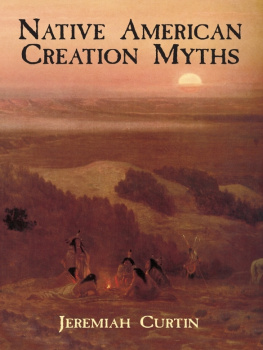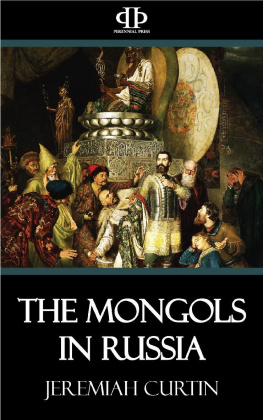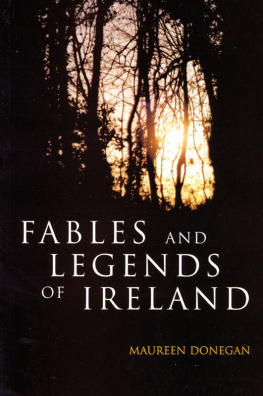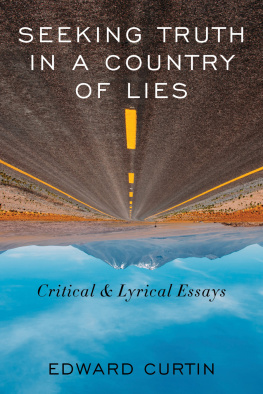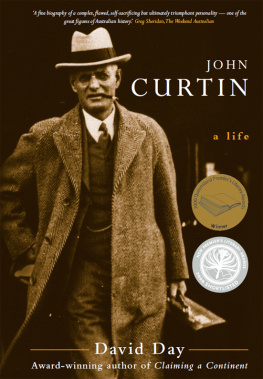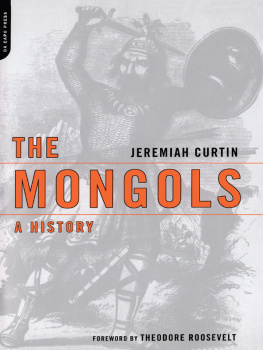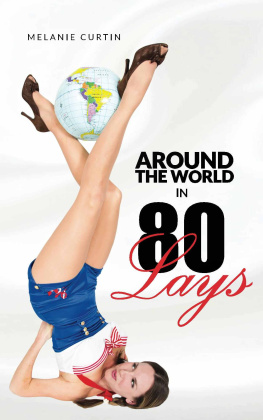Published in Canada by General Publishing Company, Ltd., 30 Lesmill Road, Don Mills, Toronto, Ontario.
Bibliographical Note
This Dover edition, first published in 1999, is an unabridged and unaltered republication of the work originally published by Macmillan and Co., London, in 1894.
Library of Congress Cataloging-in-Publication Data
Curtin, Jeremiah, 18351906.
Hero-tales of Ireland / Jeremiah Curtin.
p. cm.
Originally published: London : Macmillan, 1894.
9780486311333
1. Tales Ireland. I. Title.
GR153.5 .C8 1999
398.20941702 dc21
99-045379
Manufactured in the United States of America
Dover Publications, Inc., 31 East 2nd Street, Mineola, N.Y. 11501
INTRODUCTION.
T HE tales included in this volume, though told in modern speech, relate to heroes and adventures of an ancient time, and contain elements peculiar to early ages of story-telling. The chief actors in most of them are represented as men ; but we may be quite sure that these men are substitutes for heroes who were not considered human when the stories were told to Keltic audiences originally. To make the position of these Gaelic tales clear, it is best to explain, first of all, what an ancient tale is ; and to do this we must turn to uncivilized men who possess such tales yet in their primitive integrity.
We have now in North America a number of groups of tales obtained from the Indians which, when considered together, illustrate and supplement one another; they constitute, in fact, a whole system. These tales we may describe as forming collectively the Creation myth of the New World. Since the primitive tribes of North America have not emerged yet from the Stone Age of development, their tales are complete and in good preservation. In some cases simple and transparent, it is not difficult to recognize the heroes; they are distinguishable at once either by their names or their actions or both. In other cases these tales are more involved, and the heroes are not so easily known, because they are concealed by names and epithets. Taken as a whole, however, the Indian tales are remarkably clear ; and a comparison of them with the Gaelic throws much light on the latter.
What is the substance and sense of these Indian tales, of what do they treat? To begin with, they give an account of how the present order of things arose in the world, and are taken up with the exploits, adventures, and struggles of various elements, animals, birds, reptiles, insects, plants, rocks, and other objects before they became what they are. In other words, the Indian tales give an account of what all those individualities accomplished, or suffered, before they fell from their former positions into the state in which they are now. According to the earliest tales of North America, this world was occupied, prior to the appearance of man, by beings called variously the first people, the outside people, or simply people, the same term in all cases being used for people that is applied to Indians at present.
These people, who were very numerous, lived together for ages in harmony. There were no collisions among them, no disputes during that period ; all were in perfect accord. In some mysterious fashion, however, each individual was changing imperceptibly; an internal movement was going on. At last, a time came when the differences were sufficient to cause conflict, except in the case of a group to be mentioned hereafter, and struggles began. These struggles were gigantic, for the first people had mighty power; they had also wonderful perception and knowledge. They felt the approach of friends or enemies even at a distance ; they knew the thought in anothers heart. If one of them expressed a wish, it was accomplished immediately ; nay, if he even thought of a thing, it was there before him. Endowed with such powers and qualities, it would seem that their struggles would be endless and indecisive; but such was not the case. Though opponents might be equally dexterous, and have the power of the wish or the word in a similar degree, one of them would conquer in the end through wishing for more effective and better things, and thus become the hero of a higher cause; that is, a cause from which benefit would accrue to mankind, the coming race.
The accounts of these struggles and conflicts form the substance of the first cycle of American tales, which contain the adventures of the various living creatures, plants, elements, objects, and phenomena in this world before they became what they are as we see them. Among living creatures, we are not to reckon man, for man does not appear in any of those myth tales; they relate solely to extra-human existences, and describe the battle and agony of creation, not the adventures of anything in the world since it received its present form and office. According to popular modes of thought and speech, all this would be termed the fall of the gods; for the first people of the Indian tales correspond to the earliest gods of other races, including those of the Kelts. We have thus, in America, a remarkable projection of thought, something quite as far-reaching for the world of mind as is the nebular hypothesis for the world of matter. According to the nebular hypothesis, the whole physical universe is evolved by the rotary motion of a primeval, misty substance which fills all space, and which seems homogeneous. From a uniform motion of this attenuated matter, continued through eons of ages, is produced that infinite variety in the material universe which we observe and discover, day by day ; from it we have the countless host of suns and planets whose positions in space correspond to their sizes and densities, that endless choral dance of heavenly bodies with its marvellous figures and complications, that ceaseless movement of each body in its own proper path, and that movement of each group or system with reference to others. From this motion, come climates, succession of seasons, with all the variety in this world of sense which we inhabit. In the theory of spiritual evolution, worked out by the aboriginal mind of America, all kinds of moral quality and character are represented as coming from an internal movement through which the latent, unevolved personality of each individual of these first people, or gods, is produced. Once that personality is produced, every species of dramatic situation and tragic catastrophe follows as an inevitable sequence. There is no more peace after that; there are only collisions followed by combats which are continued by the gods till they are turned into all the things, animal, vegetable, and mineral, which are either useful or harmful to man, and thus creation is accomplished. During the period of struggles, the gods organize institutions, social and religious, according to which they live. These are bequeathed to man ; and nothing that an Indian has is of human invention, all is divine. An avowed innovation, anything that we call reform, anything invented by man, would be looked on as sacrilege, a terrible, an inexpiable crime. The Indian lives in a world prepared by the gods, and follows in their footsteps, that is the only morality, the one pure and holy religion.




